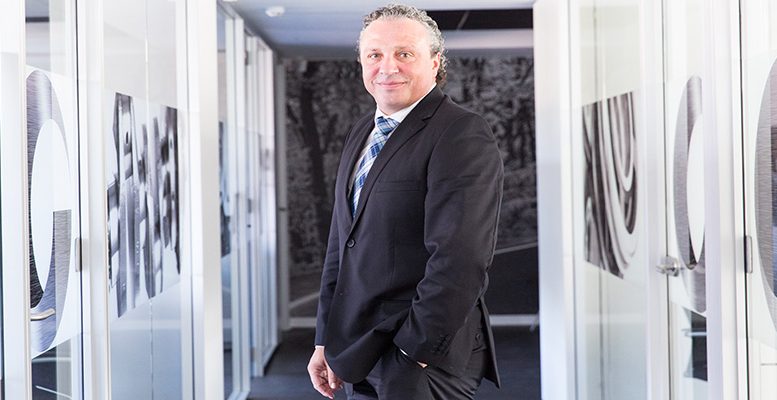Q: CIE Automotive is a successful example of a big multinational in the components business built up from the integration of small companies. This is a process which is almost unknown in Spain. How was it done?
A: When we started the project 21 years ago, we saw there were a lot of SMEs in Spain which had signficant knowledge of automotive processes and technologies, but they had a problem: they were small, local firms which it found it difficult to grow and expand. So in 1996, we began with Spain, buying the best companies available, which were successful in producing components for manufacturing plants outside Spain, in Europe. Then, in 2000, we started buying companies outside Spain, first in Eastern Europe and later in Brazil.
Q: What was the secret to making this acquisition strategy work?
A: Well, one of the key points is that we always enter a new country hand in hand with a local partner. We did this in Brazil, in Mexico and in India. The reason is that it’s fundamental to get to know the country, how business is done there, what the relationship with clients or trade unions is like…The local partner helps you to understand and break into the market. Another decisive factor is that the company’s technological know-how is here. We need to bear in mind that the automotive industry in Europe is far more advanced than in the rest of the world.
Q: CIE is a very decentralised company, where the subsidiaries have quite a bit of autonomy in their markets. But this doesn’t mean that its like a financial holding company, does it?
A: We are not a holding. We are a 100% industrial company. And, whatsmore, we couldn’t be anything else. The components sector is very tough and competitive. If you are not completely focused and don’t excel in management, processes or in costs, you won’t be successful. We have come across many companies with a lot of knowledge but they failed because they lacked discipline. Furthermore, integrating different companies, in so many countries, transferring your business culture and making them grow from one year to the next is not easy.
Q: I have read that CIE manufactures thousands of different products.
A: Yes that’s right. We make over 6,000 different products. As a matter of fact, we can manufacture any product. We don’t care whether it’s one product or another. What we are concerned about is improving our processes. It’s the manufacturing process which is the key to efficiency and success. Our plants are designed in such way that they can make different products and technologies. You just need to change the mould or the die. We have never been interested in directing our investments towards one specific product. If this product-project isn’t a success, we can register losses. Our investment is generic, for a variety of technologies. And then we also try to make the most of our equipment. The saturation of our asset needs to be over 90%: this is basic for achieving efficiency.
Q: And have you not experienced some difficult times? Have you always grown?
A. Throughout these last 21 years. Furthermore, we are outpacing market growth. The world market is currently expanding at 6%, while we will post double digit growth this year.
Q: This seems incredible, doesn’t it?
A: There is something in our case which has a multiplying effect: our decentralised model. For example, we don’t have a very big corporate staff. The cost of our global corporate staff is less than 0.5% of sales. To give you an idea of the difference, there are companies where this cost represents 3% or 4% of sales. Decentralisation is important because what we have is a direct relationship with our subsidiaries. There are no different levels, no strata and no filters. The decision making is very quick. Every day here we take decisions directly with the directors of the subsidiaries in the different countries.
Q: Spain’s automobile industry is now number two in Europe, after Germany.
A: During the 2008 crisis, the only car assembly industry where production expanded was in Spain. We were the only country in Europe where no factories were closed.
Q: Crises can be destructive. But for the automotive industry in Spain, it seems it was a blessing. How do you explain that?
A: It’s only through crises that you find maximum efficiency. They are good for making everyone react and put every effort they can into improving the production chain. In fact, in CIE we are always going through some crisis or other. If things are going well in some areas, they go badly in others. In 2008, we began to have problems in Europe: now Europe is a jewel in our crown. Brazil’s the same. Car production fell sharply in that country and there is still a crisis today, but we are growing at 35%. I believe that in the end we emerge stronger from crises. There hasn’t been one crisis from which we haven’t come out much stronger.





